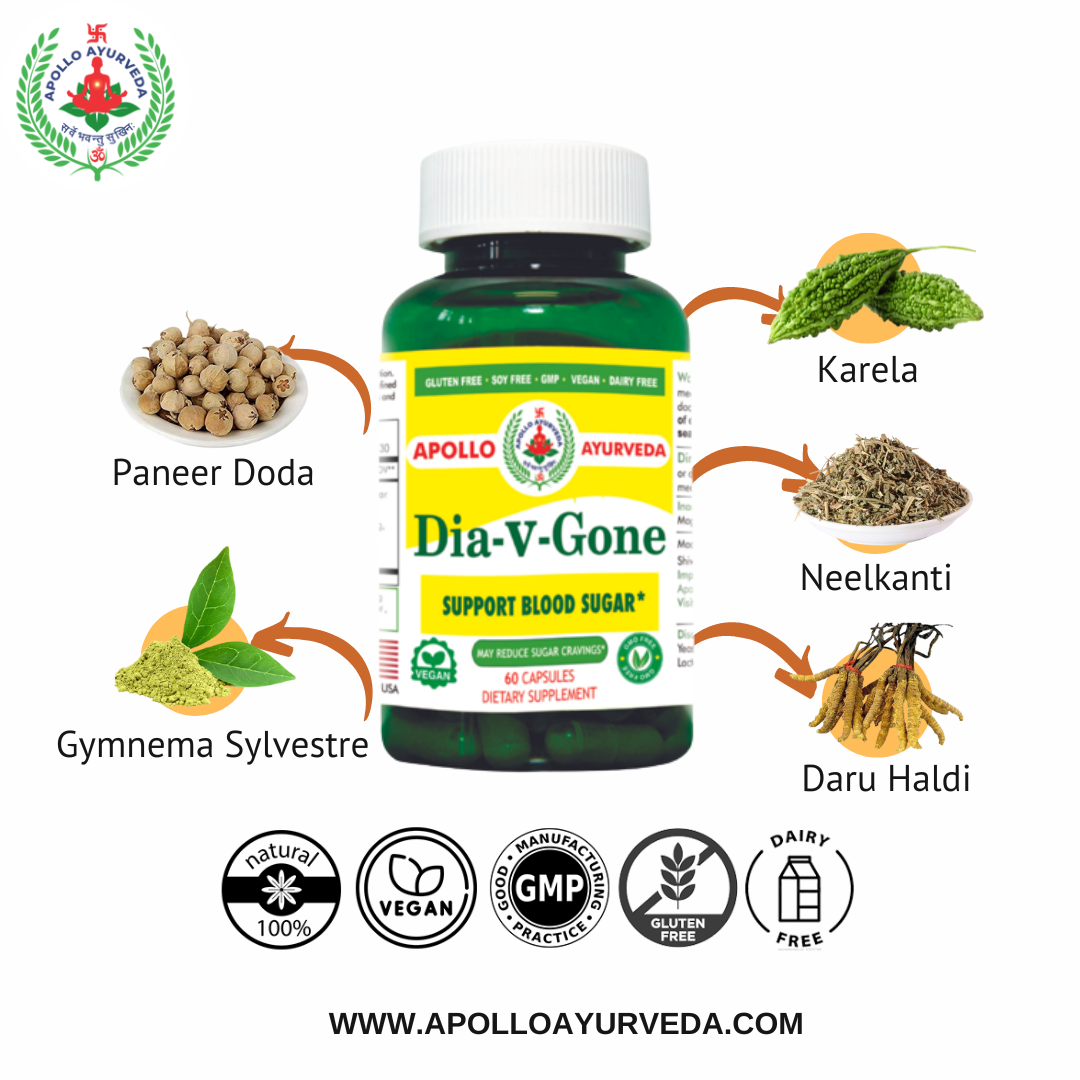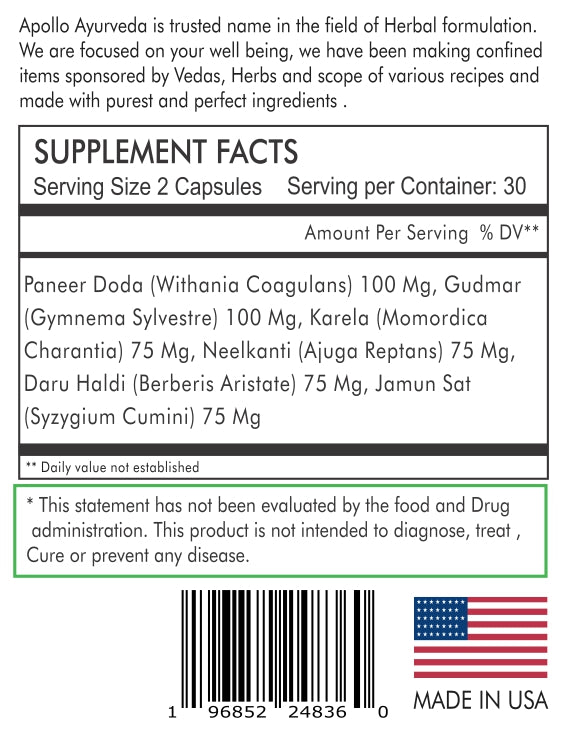JAMUN
Share
The Myrtaceae plant Syzygium Cumini is also known as Eugenia Cumini and Syzygium Jambolanum. The common names Black Plum, Jambul, Java Plum, Jamblang, Indian Blackberry, and Jamun are also used to refer to it. These trees have naturalized in Hawaii and Florida in the United States of America, as well as the Asian subcontinent, South America, Eastern Africa, and Madagascar. The tree only produces sweetish-sour berries once a year. Health drinks, preserves, jellies, squashes, and wine are all made with ripe fruits.
The botanical name for Jamun is Syzygium Cumini .
MORE ABOUT JAMUN
- Dosha of Jamun
- Traditional Uses of Jamun
- Benefits of Jamun
- Scientific research about Jamun
- Precautions or Side Effects of Jamun
- How can anyone incorporate the Jamun into their routine?
Dosha of Jamun
Jamun is thought to help balance Pitta dosha, which is linked to heat, inflammation, and acidity. Jamun’s astringent and cooling qualities assist in taming Pitta’s overactive characteristics. Additionally, the Kapha and Vata doshas gain from it. The Vata dosha, which controls movement and nervous system operations, is balanced and stabilized by the grounding and nourishing qualities of Jamun. It also promotes kapha dosha through its astringent and slightly drying properties, which influence the structure and lubrication of foods.
Traditional Uses of Jamun
- The bark of jamun is used as an astringent and is given in cases of dysentery, chronic diarrhea, and menorrhagia, and as a mouthwash for treating spongy gums and other oral diseases.
- The bark is also used for bronchitis, sore throat, asthma, biliousness, thirst, dysentery, blood impurities, and ulcers, in addition to dyeing, inflammatory skin conditions, tanning, and coloring fishnets.
- The fruit of the plant, known as jamun, is used for vaginal discharges, obesity, menstrual disorders, and cold infusion for intrinsic hemorrhage.
- The pharmacological activities associated with jamun include antioxidant, antidiabetic, antimicrobial, anti-inflammatory, hepatoprotective, gastroprotective, and anticancer activities.
Benefits of Jamun
Supports healthy blood sugar level
Jamun fruit is widely recognized for its remarkable anti-diabetic properties, making it beneficial for individuals with diabetes. It can control blood sugar levels. Jamuns have the unique capacity to convert starch into energy and maintain glucose levels in the body. By increasing insulin sensitivity and activity, consuming jamun daily can effectively lower blood sugar levels. Due to its low glycemic index, drinking jamun fruit juice has also been found to reduce type 2 diabetes symptoms like frequent urination and excessive thirst.
Boosts immune system
Jamun contains antioxidants and Vitamin C which can potentially enhance the immune system. The removal of harmful free radicals from the body and the defense against cell damage are two important functions of vitamin C. By consuming jamun, one can potentially benefit from its Vitamin C content and antioxidant properties, thereby supporting immune system health.
Supports healthy digestion
Jamun fruit juice can be an effective remedy for various stomach-related issues. It may be able to treat ailments like diarrhea and stomach pain as well as irritable bowel syndrome. Jamuns are known for their ability to support a healthy digestive system. Incorporating jamun into your diet may help you manage and alleviate stomach-related problems, ensuring a healthier and more comfortable digestive experience.
Free from Harmful Chemicals
Jamun is a naturally grown fruit that is free from harmful chemicals such as herbicides, pesticides, and synthetic additives. Choosing jamun or its derived products ensures a safe and wholesome option for those seeking natural and chemical-free food choices.
Anti-oxidant activity
The antioxidant activity of jamun is noteworthy. Antioxidants are essential for scavenging dangerous free radicals, lowering oxidative stress, and guarding against potential cell damage. Incorporating jamun into your diet can be beneficial for overall health and well-being, thanks to its strong antioxidant properties
Scientific research about Jamun
Anti-diabetic activity
The methanol extract of the black Jamun plant exhibits effects similar to insulin and rosiglitazone by influencing the expression of Glut-4 (glucose transporter), PPARγ (peroxisome proliferator activator receptor gamma), and PI3 kinase (phosphatidylinositol-3-kinase). Jamun demonstrates significantly improved glucose tolerance, hypoglycemic activity, and reduced lipid peroxidation in various organs of diabetic rats.
Antioxidant activity
The ORAC (oxygen radical absorbance capacity) capacity of jamun pulp and seed extracts was concentration-dependent, as measured by Trolox equivalents. These extracts effectively reduced the decay of fluorescein fluorescence caused by AAPH (2,2′-Azobis(2-amidinopropane) hydrochloride), with the seed extract exhibiting a higher ORAC value compared to the pulp extract. These results emphasize the antioxidant activity of Jamun extracts, suggesting potential health benefits.
Precautions or Side Effects of Jamun
- Some individuals may be allergic to jamun.
- Jamun may interact with certain medications, particularly those used for diabetes management.
- Excessive intake of Jamun can cause gastrointestinal discomfort.
- It is advised to exercise caution when consuming jamun seeds because they can be toxic in large doses.
How can anyone incorporate the Jamun into their routine?
Ways to Incorporate Jamun into Your Routine:
Fresh Fruit Consumption
Enjoy the fresh fruit of jamun as a delicious and nutritious snack.
Jamun Juice
Stomach pain can be treated with fresh leaf juice, while organ enlargement and persistent diarrhea can be treated with syrup or vinegar made from ripe fruit.
Herbal Teas and Infusions
Make herbal teas or infusions using dried jamun leaves or fruits for a refreshing and health-boosting beverage.
Dietary Supplements
Consider using jamun extracts or supplements following recommended dosages and consulting a healthcare professional if needed.










